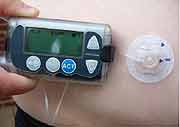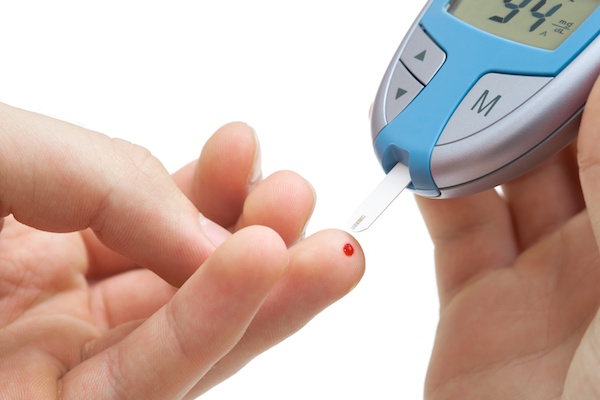
TUESDAY, Dec. 15 (HealthDay News) — Tight blood sugar control needn’t be the end-all factor for people with type 2 diabetes who have other medical problems, a new study indicates.
The degree of blood sugar control in type 2 diabetes “has been a subject of controversy for a decade,” said Dr. Sheldon Greenfield, a professor of medicine at the University of California at Irvine, and lead author of a report in the Dec. 15 issue of the Annals of Internal Medicine. “Our work attempts to reconcile these contentious issues.”
Greenfield and his collaborators followed 2,613 people treated for diabetes at clinics in Italy for five years, measuring the benefit they received in terms of reduced heart attacks and other cardiovascular problems from achieving blood glucose levels lower than 6.5 percent, slightly below the 7 percent level that is generally recommended. They found that those benefits were directly related to the presence of other medical problems — more problems, less benefit.
The accompanying problems were listed by using a widely used Total Illness Burden Index, which includes conditions affecting a number of systems — heart, gastrointestinal and foot — with a heavy emphasis on cardiovascular issues such as high blood pressure and high cholesterol.
Blood glucose levels below 6.5 percent were associated with a lower risk of cardiovascular events in people with low to moderate levels of accompanying problems, but not in those with a high level of such problems, the study found. The same was true for a glucose blood level of 7 percent.
“The message for people with lots of other medical conditions is that their life can be easier, they can ease up a bit on blood glucose levels and focus on the other medical conditions they have,” Greenfield said.
But for those people, he quickly added, “you don’t want blood sugar to be very high. It should be between 7 and 8, at least moderately controlled.”
And tighter control is advisable for diabetics who don’t have many accompanying medical conditions, Greenfield noted. “It should be tailored, and those people who most benefit from a low blood sugar level should strive for it,” he said. “In persons where everything [else] is working, you should get below 7 if possible.”
Several previous studies have shown little or no benefit, or even increased danger of heart disease, from too-tight control of blood glucose levels in type 2 diabetes, said Dr. David Nathan, a professor of medicine at Harvard Medical School and director of the Diabetes Center at Massachusetts General Hospital, who wrote an accompanying editorial.
One such study, reported earlier this year, found a 10 percent increased risk of death associated with intense efforts to reduce blood sugar levels in diabetics treated in hospital intensive care units.
But, Nathan noted, “we have lots and lots of data showing that keeping average blood sugar over the preceding three months at less than 7 percent is good for you. It is good in particular to protect the eyes, kidneys and nerves from the ravages of diabetes. The question is whether driving the level even lower will protect you further. There are several large studies showing that there is no benefit in terms of heart disease or even that it may be dangerous.”
The new study is not definitive, since it is observational, without the controls that mark the best medical trials, Nathan pointed out. For a definitive controlled trial, “you would need to treat a younger, healthier population for a longer period of time to see a benefit,” he said. The size and cost of such a trial make it highly unlikely that one will be done, Nathan added.
For people with type 2 diabetes, “7 percent should be the goal for most patients,” he said. “Efforts to push the level much lower are currently not supported by data, and clinicians should be cautious about trying to push it lower.”
But that advice doesn’t apply to people with diabetes who can achieve lower levels by eating properly, without the help of medications, Nathan stated. “If they can do it with diet alone, that is terrific,” he said.
More information
To learn about type 2 diabetes, visit the American Diabetes Association.

